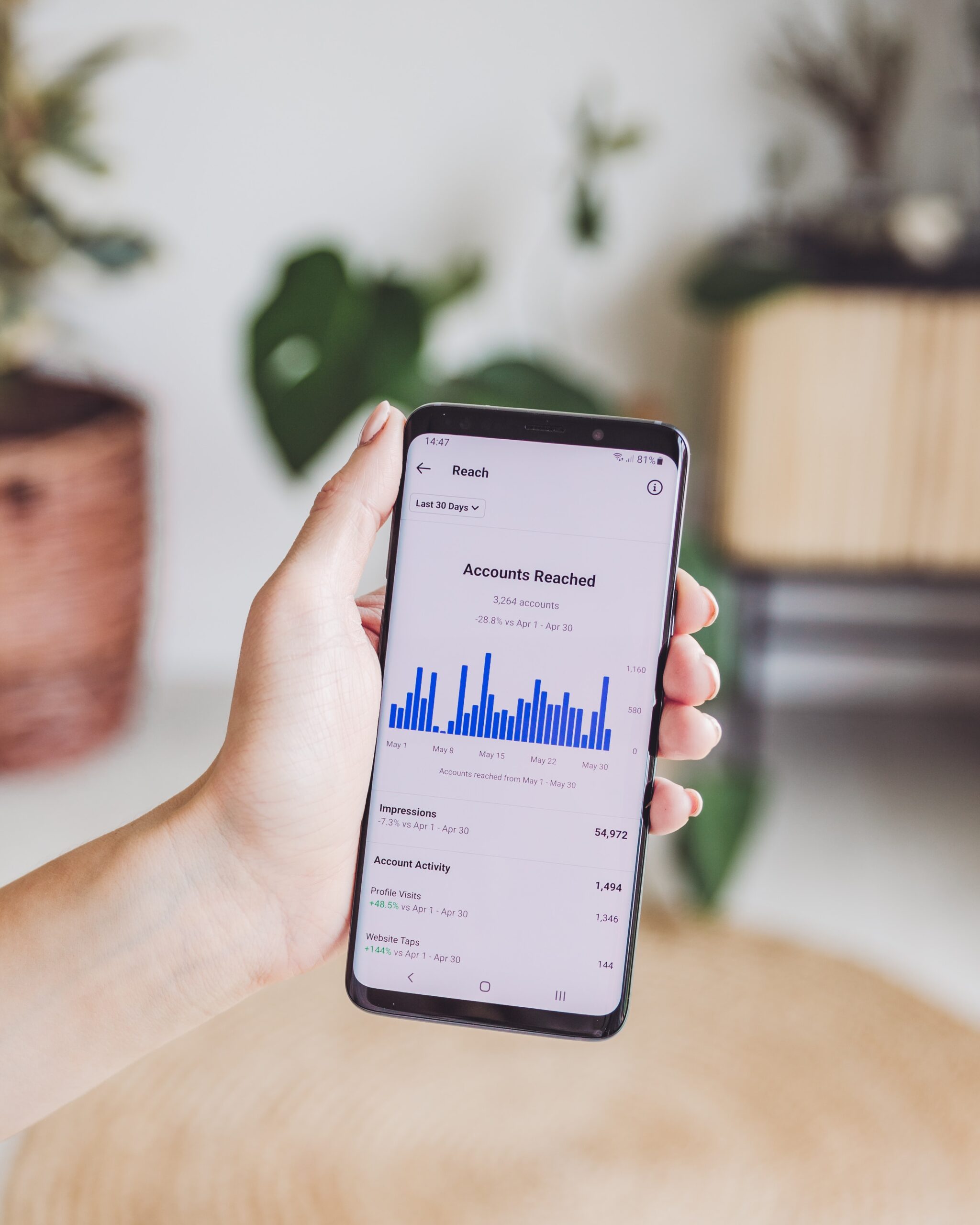How To Optimize Your Website For Mobile App Indexing And App Store Optimization?
Are you looking to enhance the visibility of your mobile app and increase its downloads? One effective strategy is to optimize your website for mobile app indexing and app store optimization. By doing so, you can improve your app’s ranking in search results and attract more potential users. In this article, we will explore the key steps you can take to optimize your website and ensure that your app gains the attention it deserves. From understanding the importance of mobile app indexing to implementing effective app store optimization techniques, we will cover it all. Don’t miss out on this opportunity to boost your app’s performance and reach a wider audience.
Understanding Mobile App Indexing
What is mobile app indexing?
Mobile app indexing is a process that allows search engines to index the content within mobile applications. It means that the content and deep links within your app can be searchable and accessible to users through search engine results. It helps bridge the gap between the web and mobile apps, making it easier for users to discover and access relevant app content.
Why is mobile app indexing important?
Mobile app indexing is important because it enhances the visibility and discoverability of your app. With millions of apps available in the app stores, it can be challenging for your app to stand out. By enabling mobile app indexing, your app’s content can appear in search engine results, reaching a wider audience and increasing the chances of app downloads. It is also beneficial for user engagement and improving the overall user experience.
How does mobile app indexing work?
Mobile app indexing works by associating the deep links within your app with the relevant web content. When a user performs a search query related to your app’s content, the search engine crawls and indexes your app’s deep links. These deep links are then displayed in search results alongside web pages. When a user taps on the deep link, it directs them to the specific content within your app. This seamless integration between search engines and apps enables users to find and access app content without having to install the app initially.
Factors for Mobile App Indexing
App deep links
App deep links are critical for mobile app indexing as they establish a connection between your app and the web. Deep links are URLs that direct users to a specific page within your app, bypassing the app’s home screen. They allow users to access content within your app directly from search engine results, increasing the chances of user engagement and app installations. Implementing deep links involves adding specific code to your app and configuring the routing for each deep link.
App indexing API
App indexing API is a powerful tool provided by major search engines like Google. It allows developers to directly integrate their apps with the search engine, enabling the crawling and indexing of app content. By using the app indexing API, you can ensure that your app’s deep links and content are indexed and displayed in search engine results. It also provides additional functionalities like tracking user actions within the app and deep linking to specific sections of the app.
App content
The content within your app plays a crucial role in mobile app indexing. Search engines analyze the text, images, and other media within your app’s content to understand its relevance to user search queries. It is important to optimize your app’s content by incorporating relevant keywords, providing a clear and concise description, and organizing the content in a user-friendly manner. The quality and relevance of your app’s content greatly influence its visibility and ranking in search engine results.

Implementing Mobile App Indexing
Ensuring cross-platform compatibility
To implement mobile app indexing effectively, it is crucial to ensure cross-platform compatibility. Your app should be available on both iOS and Android platforms to reach a wider audience. Additionally, the deep links within your app should work seamlessly on different devices and operating systems. Any discrepancies in functionality or compatibility may hinder the effectiveness of mobile app indexing.
Creating app deep links
Creating app deep links involves adding specific code to your app that allows search engines to recognize and index these links. Deep links should be unique for each page or section within your app and should direct users to the corresponding content. It is important to follow the guidelines and best practices provided by search engines to ensure proper creation and implementation of deep links.
Setting up app indexing API
Setting up the app indexing API is essential to establish a direct connection between your app and search engines. This involves integrating the API into your app and configuring the necessary settings. By implementing the app indexing API, you can ensure that the deep links and content within your app are crawled, indexed, and made searchable by search engines. It also provides valuable insights into user engagement and actions within the app.
Benefits of Mobile App Indexing
Increased app visibility
Mobile app indexing significantly improves the visibility of your app in search engine results. When your app’s deep links and content appear in search results, it exposes your app to a larger audience who may not have been aware of it otherwise. This increased visibility can lead to higher app downloads and installations, ultimately boosting your app’s popularity and success.
Improved user engagement
By enabling mobile app indexing, you make it easier for users to access and engage with the content within your app. When users can find relevant app content directly through search engine results, it eliminates the need for them to navigate through multiple screens or install the app upfront. This convenience leads to increased user engagement with your app, as users can quickly access the specific content they are searching for.
Enhanced user experience
Mobile app indexing enhances the overall user experience by providing seamless integration between search engines and apps. Users can easily discover and access app content without any additional steps or barriers. It eliminates the need for users to switch between search results and the app store, making their journey more efficient and enjoyable. This positive user experience can lead to higher user satisfaction and retention.

Introduction to App Store Optimization (ASO)
What is app store optimization?
App Store Optimization (ASO) is the process of optimizing mobile apps to increase their visibility and discoverability in the app stores. It involves optimizing various elements of the app listing, including app title, description, keywords, and visual assets. ASO aims to improve the app’s ranking in app store search results, resulting in higher app downloads and installations.
Why is ASO important for mobile apps?
ASO is important for mobile apps because it directly influences the app’s visibility and discoverability in the app stores. With millions of apps competing for attention, it can be challenging for your app to stand out. By implementing ASO strategies, you can improve your app’s ranking in app store search results, making it more visible to potential users. ASO also helps attract the right audience by optimizing keywords and targeting relevant app categories.
ASO vs SEO: Key differences
ASO and SEO (Search Engine Optimization) are similar in concept but tailored for different platforms. ASO focuses on optimizing mobile apps specifically for app store search results, while SEO involves optimizing websites for search engine results. The ranking factors, optimization techniques, and tools used in ASO and SEO differ significantly due to the unique algorithms and search mechanisms of app stores and web search engines.
ASO Factors to Consider
App title and description
The app title and description are crucial elements to optimize for ASO. The app title should be catchy, informative, and include relevant keywords to make it easier for users to find the app in search results. The description should provide a clear and concise overview of the app’s features and benefits. It should also incorporate keywords naturally to improve the app’s ranking in app store search results.
Keywords and metadata
Identifying and incorporating relevant keywords is essential for ASO success. Conducting thorough keyword research helps you understand the search terms used by your target audience. By including these keywords in the app’s metadata, such as the app title, description, and keyword field, you can increase the app’s visibility in search results. However, it is important to ensure that the keywords are used in a natural and non-spammy manner.
App ratings and reviews
App ratings and reviews are influential factors in ASO. Positive ratings and reviews not only increase the app’s credibility but also impact its ranking in app store search results. Encouraging users to leave positive reviews and ratings can greatly improve the performance of your app in the app stores. It is essential to address any negative feedback promptly and provide solutions to improve the app’s reputation and user satisfaction.

App Store Optimization Techniques
Keyword research and analysis
Thorough keyword research is the foundation of effective ASO. It helps you identify relevant keywords that potential users may search for in the app store. By analyzing the search volume and competition for each keyword, you can prioritize which keywords to target and incorporate them into the app’s metadata. Regularly monitoring and updating keywords based on user trends and market changes is crucial for maintaining ASO success.
App localization
App localization involves adapting the app’s content and metadata to cater to different markets and languages. By localizing the app’s title, description, and visual assets, you can increase its relevance and appeal to specific regions or demographics. This improves the app’s visibility and ensures that it is easily discoverable by users worldwide. Localizing the app’s keywords is also important to target specific regional search terms.
Optimizing app visuals (icons, screenshots)
Visual elements play a significant role in ASO. A visually appealing app icon can capture the attention of users browsing through the app store, increasing the likelihood of app clicks and installations. Similarly, high-quality screenshots showcasing the app’s features and user interface can communicate the app’s value and encourage user engagement. Optimizing these visuals and ensuring they align with the app’s branding and target audience is crucial for ASO success.
Importance of User Feedback and Reviews
Impact of positive reviews
Positive user reviews have a significant impact on the success of your app. They not only build trust and credibility but also influence potential users’ decisions to download and try the app. Positive reviews increase the app’s overall rating, improving its visibility and ranking in app store search results. Encouraging happy users to leave reviews and testimonials can greatly enhance your app’s reputation and attract new users.
Handling negative feedback
Negative feedback is inevitable, but it provides an opportunity for improvement. Addressing negative feedback promptly and effectively shows that you value user input and are committed to enhancing their experience. By actively addressing user concerns, providing explanations or solutions, and demonstrating ongoing improvements, you can turn negative feedback into positive outcomes. Handling negative feedback in a professional and customer-centric manner helps maintain a positive app reputation.
Encouraging user reviews
Encouraging users to leave reviews is important to maintain a steady stream of feedback and engagement for your app. Implementing strategies such as in-app prompts or push notifications asking users to rate and review the app can increase the number of user reviews. Offering incentives or rewards for leaving reviews can also incentivize users to provide feedback. However, it is important to maintain transparency and authenticity in soliciting user reviews to ensure their credibility.
The Role of App Preview Videos
Creating engaging app preview videos
App preview videos are an effective marketing tool to showcase the features and functionality of your app. These videos provide potential users with a visual representation of the app’s interface, navigation, and key features. Creating engaging and informative app preview videos can generate interest and excitement, encouraging users to download and try your app. The videos should be concise, visually appealing, and highlight the unique aspects of your app.
Optimizing video metadata
Optimizing the metadata associated with your app preview videos is essential for ASO. This includes providing a captivating title, relevant keywords, and a concise description. The metadata should accurately reflect the content and purpose of the video, making it easier for users to find your videos in app store search results. Including relevant keywords in the video metadata can improve the video’s visibility and ranking.
Promoting videos across platforms
To maximize the reach and impact of your app preview videos, it is important to promote them across various platforms. Sharing the videos on social media platforms, your website, or other promotional channels can increase their exposure and attract a wider audience. Utilizing video-sharing platforms like YouTube or Vimeo can also increase visibility and generate organic traffic to your app’s listing page in the app stores.
Tracking and Monitoring App Store Performance
Using analytics tools
Tracking and monitoring the performance of your app in the app stores is crucial for ASO. Analytics tools provide valuable insights into various aspects of your app’s performance, including downloads, installations, user engagement, and user behavior. By analyzing these metrics, you can identify areas for improvement, evaluate the effectiveness of your ASO strategies, and make data-driven decisions to optimize your app’s performance.
Monitoring keyword rankings
Monitoring keyword rankings helps you understand how your app is performing in app store search results. By tracking the rankings of your targeted keywords, you can assess the effectiveness of your ASO efforts and make necessary adjustments. Monitoring keyword rankings also allows you to identify new trends or emerging keywords that can be incorporated into your ASO strategy for better visibility and discoverability.
Evaluating conversion rates
Analyzing conversion rates is crucial for understanding how effectively your app is converting app store visitors into actual downloads and installations. Conversion rate optimization involves assessing the effectiveness of your app’s listing page, including the visuals, description, and overall appeal. By evaluating conversion rates, you can identify potential areas for improvement and make adjustments to optimize the app’s listing page for maximum conversions.
In conclusion, optimizing your website for mobile app indexing and app store optimization is crucial for the success of your mobile app. Mobile app indexing enhances visibility and user engagement, while app store optimization increases discoverability and attract the right audience. By implementing effective strategies, such as creating app deep links, utilizing ASO techniques, encouraging user feedback, and monitoring app store performance, you can improve your app’s visibility, user engagement, and overall success in the competitive mobile app market.




